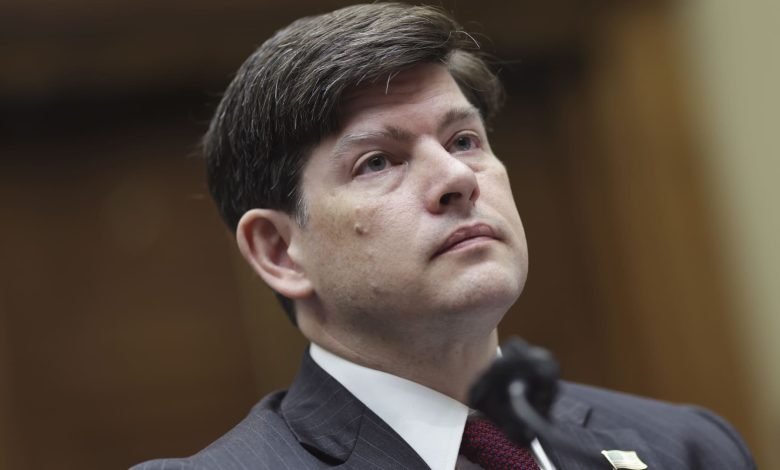Republican, Democratic FCC commissioners stepping down this week

Nathan Simington, Commissioner at the Federal Communications Commission (FCC) testifies during a House Energy and Commerce Committee Subcommittee hearing on March 31, 2022 in Washington, DC. The subcommittee held a hearing on oversight of the FCC.
Kevin Dietsch | Getty Images
Two members of the Federal Communications Commission said Wednesday they plan to resign this week, giving President Donald Trump two more seats to fill on the U.S. telecom regulator.
Republican Nathan Simington was confirmed in December 2020 to the five-member FCC after he led a regulatory effort during Trump’s first term in office seeking to rein in social media companies, and could have stayed on until the end of the year.
Democratic FCC Commissioner Geoffrey Starks, who could have stayed until 2028, said he plans to step down this week.
Meanwhile, the Senate has not yet voted on the nomination of Senate aide Olivia Trusty to serve on the panel. That could temporarily leave the FCC with one Republican and one Democratic commissioner.
Turnover at the FCC is common during changes in presidential administrations.
The departures come as Trump has pressured Republican FCC Chair Brendan Carr to strip CBS of its broadcast licenses after Trump sued CBS News seeking $20 billion over its editing of a “60 Minutes” interview in October 2024 with then-Democratic presidential candidate Kamala Harris.
Trump has fired Democratic commissioners on other independent agencies, including the Federal Trade Commission.
Carr has rejected a bid from CBS, which is owned by Paramount Global, to dismiss the complaint alleging the Harris interview violated the FCC’s “news distortion” rules. Paramount is seeking FCC approval for an $8.4 billion merger with Skydance Media.
He has given no timeframe for when the FCC might act on the merger.
In April, the long-time executive producer of “60 Minutes,” Bill Owens, said he was stepping down over concerns about editorial independence.
In January, Carr reinstated complaints about the “60 Minutes” interview with Harris, as well as complaints about how Walt Disney’s ABC News moderated the pre-election TV debate between then-President Joe Biden and Trump.
The FCC also reinstated complaints against Comcast’s NBC for allowing Harris to appear on “Saturday Night Live” shortly before the election.
Carr also pressured Verizon to roll back its diversity, equity and inclusion program before the FCC agreed to approve its $20 billion deal to acquire fiber-optic internet provider Frontier Communications.
Disclosure: Comcast’s NBCUniversal is the parent company of CNBC and broadcast network NBC.



